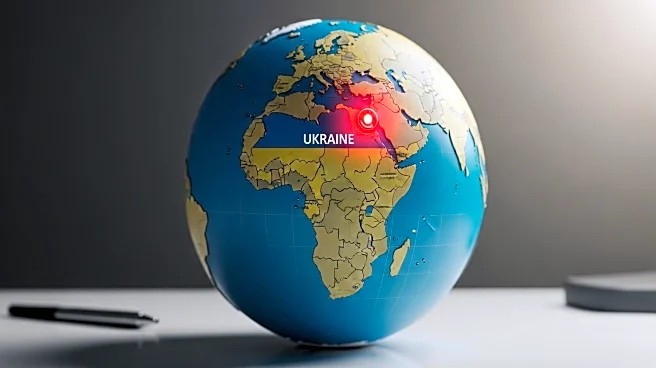What's Happening?
Russian drone and missile strikes targeted Ukraine's energy infrastructure, causing widespread blackouts and damaging residential buildings. At least 20 people were injured in Kyiv, and a child was killed in the southeast. President Zelenskyy condemned the attacks, calling them 'cynical and calculated' as Ukraine braces for winter. The strikes involved 465 drones and 32 missiles, with air defenses intercepting many. Prime Minister Yuliia Svyrydenko described the attack as one of the largest against Ukraine's energy infrastructure since the war began.
Why It's Important?
The attacks on Ukraine's energy sector are significant as they aim to weaken the country's resilience ahead of winter, potentially affecting millions of civilians. The strikes highlight the ongoing conflict's impact on civilian infrastructure and the urgent need for international support. Zelenskyy's call for more air defense systems and sanctions underscores the geopolitical stakes and the necessity for global action to prevent further humanitarian crises.
What's Next?
Ukraine is likely to continue seeking international assistance to bolster its air defenses and repair damaged infrastructure. The global community, including the G7 and G20, may face pressure to respond decisively to support Ukraine and deter further aggression. The situation could lead to increased diplomatic efforts and potential sanctions against Russia.
Beyond the Headlines
The attacks may have long-term implications for Ukraine's energy security and economic stability. The focus on civilian infrastructure raises ethical concerns about the conduct of warfare and the protection of non-combatants. The international response could influence future geopolitical alignments and security policies.









